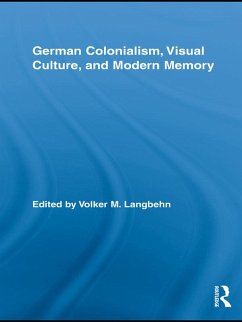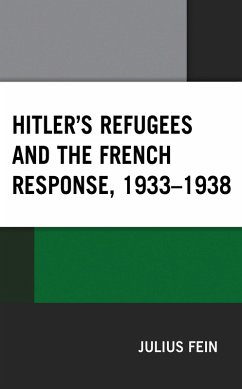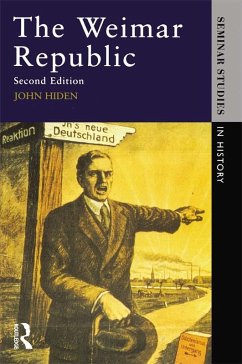
Empire in the Heimat (eBook, ePUB)
Colonialism and Public Culture in the Third Reich
Versandkostenfrei!
Sofort per Download lieferbar
23,95 €
inkl. MwSt.
Weitere Ausgaben:

PAYBACK Punkte
12 °P sammeln!
With the end of the First World War, Germany became a "post-colonial" power. The Treaty of Versailles in 1919 transformed Germany's overseas colonies in Africa and the Pacific into League of Nations Mandates, administered by other powers. Yet a number of Germans rejected this "post-colonial" status, arguing instead that Germany was simply an interrupted colonial power and would soon reclaim these territories. With the Nazi seizure of power in 1933, irredentism seemed once again on the agenda, and these colonialist advocates actively and loudly promoted their colonial cause in the Third Reich. ...
With the end of the First World War, Germany became a "post-colonial" power. The Treaty of Versailles in 1919 transformed Germany's overseas colonies in Africa and the Pacific into League of Nations Mandates, administered by other powers. Yet a number of Germans rejected this "post-colonial" status, arguing instead that Germany was simply an interrupted colonial power and would soon reclaim these territories. With the Nazi seizure of power in 1933, irredentism seemed once again on the agenda, and these colonialist advocates actively and loudly promoted their colonial cause in the Third Reich. Examining the domestic activities of these colonialist lobbying organizations, Empire in the Heimat demonstrates the continued place of overseas colonialism in shaping German national identity after the end of formal empire. In the Third Reich, the Deutsche Kolonialgesellschaft and the Reichskolonialbund framed Germans as having a particular aptitude for colonialism and the overseas territories as a German Heimat. As such, they sought to give overseas colonialism renewed meaning for both the present and the future of Nazi Germany. They brought this message to the German public through countless publications, exhibitions, rallies, lectures, photographs, and posters. Their public activities were met with a mix of occasional support, ambivalence, or even outright opposition from some Nazi officials, who privileged the Nazi regime's European territorial goals over colonialists' overseas goals. Colonialists' ability to navigate this obstruction and intervention reveals both the limitations and the spaces available in the public sphere under Nazism for such "special interest" discourses.
Dieser Download kann aus rechtlichen Gründen nur mit Rechnungsadresse in A, B, BG, CY, CZ, D, DK, EW, E, FIN, F, GR, HR, H, IRL, I, LT, L, LR, M, NL, PL, P, R, S, SLO, SK ausgeliefert werden.













